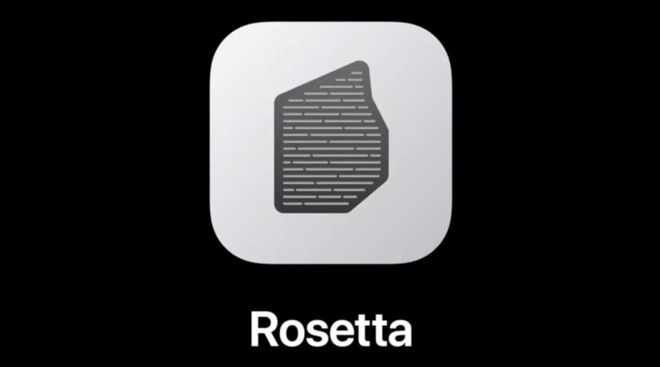Upcoming macOS 11.3 update may remove Rosetta 2 in some regions
Apple may be planning to remove support for Rosetta 2 on M1 Macs in certain regions with the release of macOS 11.3, according to code strings discovered in the third beta build of the software update.

Credit: Apple
Code strings discovered in the third beta version of macOS 11.3, which was seeded to developers Tuesday, suggest that Rosetta 2 "will be removed upon installing this update." Another string may advise that "Rosetta is no longer available in your region. Applications requiring Rosetta will no longer run."
The strings were first spotted by MacRumors contributor Steve Moser.
Rosetta 2 is a translation layer that allows Apple Silicon Macs to run apps built for Intel's x86 architecture. It's part of a suite of features meant to smooth the transition from Intel to Apple Silicon processors, a switch that kicked off in 2020 and is expected to take two years.
It isn't clear why Apple would remove Rosetta 2 in some regions, especially since nearly half of all popular macOS apps still needed the translation layer as of February 2021. However, the code strings in macOS 11.3 don't necessarily indicate that support will be cut in that software update.
In addition to the strings referring to Rosetta 2, Moser also discovered code indicating that Apple could add the ability to map controller buttons to keyboard layouts, alongside other minor updates.

Credit: Apple
Code strings discovered in the third beta version of macOS 11.3, which was seeded to developers Tuesday, suggest that Rosetta 2 "will be removed upon installing this update." Another string may advise that "Rosetta is no longer available in your region. Applications requiring Rosetta will no longer run."
The strings were first spotted by MacRumors contributor Steve Moser.
Rosetta 2 is a translation layer that allows Apple Silicon Macs to run apps built for Intel's x86 architecture. It's part of a suite of features meant to smooth the transition from Intel to Apple Silicon processors, a switch that kicked off in 2020 and is expected to take two years.
It isn't clear why Apple would remove Rosetta 2 in some regions, especially since nearly half of all popular macOS apps still needed the translation layer as of February 2021. However, the code strings in macOS 11.3 don't necessarily indicate that support will be cut in that software update.
In addition to the strings referring to Rosetta 2, Moser also discovered code indicating that Apple could add the ability to map controller buttons to keyboard layouts, alongside other minor updates.

Comments
China?
Apple announced a two-year transition. It's perfectly reasonable to tell developers that their software needs to run on Apple Silicon0 by that time. This is a way to do that. Once people's software runs on Apple Silicon without Rosetta, the implications for Apple Silicon will be minor at best.
It is possible that legal issues could hurry that, but by limiting it to markets where that happens faster than Apple plans, Apple can mitigate the damages until the transition is history.
This is not Apple's first processor change, and I suspect they have plans for how to get through the difficulties.
Planet Earth knowing Apple, should be left in fo all time or at least available to dl and install as a standalone as per users requirements, a lot of good viable software will never be moved over by their respective vendors, going from Intel to M1 is not the same as going from Motorola to Intel, that equaled more choice this on the other hand equals less
(*ducks*)
It's far from a disaster for ARM Macs, this is the route Apple has decided to go and if anything it should push developers to support it instead of relying on Rosetta. These transitions always take a bit of time because over 100 million people use Macs and they sell less than 20 million new ones per year so it will take at least 3 years before most active users are on Apple Silicon and developers prioritize support for the majority of users.
Sooooo.... You have no idea what is actually happening, if anything, but you know the outcome and what Apple should do?